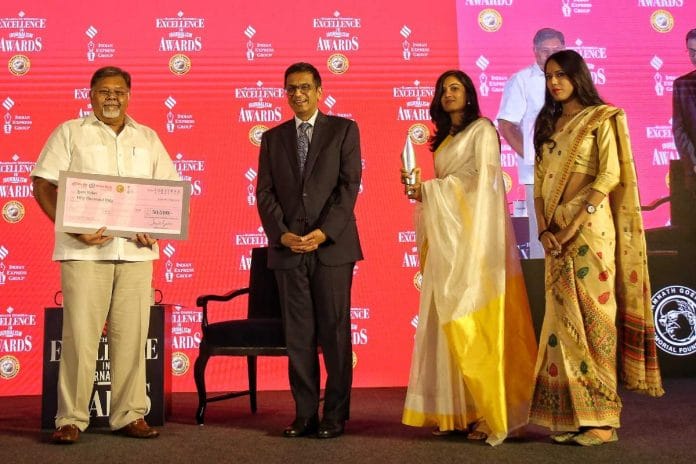New Delhi: The 16th edition of the Ramnath Goenka Journalism Awards saw 37 pieces of powerful reporting from 24 newsrooms get recognised for their coverage of issues ranging from the migrant exodus during the pandemic to the misuse of government policies.
Two of ThePrint’s journalists — Bismee Taskin and Jyoti Yadav — were felicitated for their outstanding reportage on the migrant exodus triggered by the nationwide lockdown imposed to check the spread of Covid-19. Both won the 2020 award for Hindi journalism under the ‘print’ category.
Yadav and Taskin spent three weeks on ground, their coverage spanning Bihar and Nepal. They focussed on the plight of MNREGA workers, the hardships that came with loss of income in rural India, and women delivering babies on the road — a graphic portrayal of the human cost of the lockdown.
Speaking to ThePrint, an overjoyed Taskin noted that while it was an overwhelming feeling, she was thankful for having learnt from the challenges of ground reporting. Meanwhile, Yadav said that the award made her feel more “responsible towards speaking truth to power, come what may”.
Both recalled how they had both witnessed life and death during their reporting — from a child being born, to a man dying.
At the function, the winners of 2019 and 2020 were felicitated in the presence of Union Minister Anurag Thakur, Rajya Sabha MPs Kapil Sibal and Derek O’Brien, Lok Sabha MP Manish Tewari, and others.
The chief guest at the event was Chief Justice of India D. Y. Chandrachud, who said that the awards “symbolise the eternal sense of optimism”.
In his welcome address, Viveck Goenka, chairman and managing director of The Indian Express Group, said that during the three years of uncertainty brought on by the pandemic, what was certain, was “outstanding journalism”.
“The pandemic was defeated by vaccines while the infodemic was defeated by journalists,” he added.
The Ramnath Goenka Excellence in Journalism Awards celebrate the legacy of Ramnath Goenka, the founder of The Indian Express Group. The award categories range from print, digital and broadcast media, investigative, political and sports journalism, to books, feature writing and regional language.
‘Responsible journalism is the beacon of truth’
This latest edition of the awards honoured the work of journalists across the pandemic years of 2019 and 2020, their stories revolving around the overburdened health infrastructure, migrant exodus, plight of frontline workers, unemployment, rumours, and unreported deaths, all highlighting the impact Covid-19 had on the lives of ordinary Indians.
Prize-winning stories also included reportage on cybersecurity, climate change, sexual harassment of athletes and the aftermath of the Hathras gangrape case, among others.
Quoting ThePrint’s Editor-in-Chief Shekhar Gupta, the CJI said that “the task of the journalist is to simply to cut the clutter”.
He added that “disagreement must not distort into hatred and hatred must not be permitted to evolve into violence”.
Referring to social media as a “game-changer”, the CJI said it has led to the democratisation of media, while stressing on the need for representation and asserting that newsrooms should not be “elitist, exclusionary or selective in nature”.
He ended his speech with: “Responsible journalism is the beacon of truth that guides us to a better tomorrow.”
Also Read: ThePrint gets IPI Award for Excellence in Journalism 2022 for in-depth coverage of Covid






